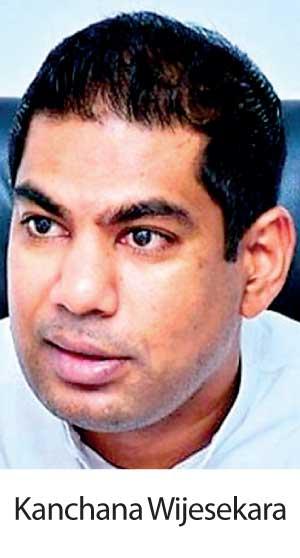12 Dec 2022 - {{hitsCtrl.values.hits}}
New Electricity Bill to tackle cost and and inefficiency in CEB 
Power and Energy Minister Kanchana Wijesekara reiterated in parliament recently that they could not prevent long power cuts up to 8 hours unless they go for another jumbo tariff hike in January next year in a clear sign that the Minister himself and the government are totally clueless of what the reforms entail in restructuring the power utility, which has plunged into massive losses due to decades of sheer mismanagement
and overstaffing.
“We definitely will have to go for an electricity tariff hike in January. Only then will we be able to provide uninterrupted power,” Wijesekara told parliament, joining in the final day of the budget debate.
Sri Lankans who are battered by runaway inflation, higher taxes, multifold increase in fuel and utilities prices are now confronted with the uneasy prospect of another round of electricity tariff hike, less than 6 months into the most recent tariff hike that came in August which saw an average 75 percent increase in their bills.
Wijesekara said even after the monster tariff hike in August, the Ceylon Electricity Board (CEB) is still making losses to the tune of Rs.112 billion through end of October, which is estimated to climb to Rs.152 billion by the end of the year as there are still segments which are under some form of subsidy.
Hence the forthcoming round of tariff hike may be looking to prevent any future losses in the coming year while trying to meet the current gap in the generation mix by bringing in adequate stocks of fuel and furnace oil to provide round the clock power.
“For us to do away with the power cut entirely, we need fuel and furnace oil. If not, we cannot have around the clock power,” Wijesekara said.
However, he added that they would do their utmost to increase the share of renewable energy in the total power generation mix before increasing the contribution from renewable energy to 2,800 megawatts by 2026.
Speaking in parliament, he presented the cost of a unit of power estimated under three scenarios.
Under severe drought conditions, the cost of one unit could be around Rs.56.90 for the CEB, while under normal weather conditions the unit cost is estimated at Rs.52.00. Under better rains, the unit cost could come down to Rs.49.00.
Last week, Wijesekara said currently the unit price averages at Rs.29.14, reflecting massive losses for every unit of power sold next year.
However, by seeking another round of price revisions, soon after an earlier one, of which the aftershocks are still being felt across households and businesses reflect that the government only pursues revenue side reforms which are both easy and straightforward.
They have completely disregarded the cost side reforms which entail a number of measures, leading one of which is cutting at least half of CEB’s staff and introducing systems using technology to run the operation smoothly with half the staff.
The absence of such reforms indicates the government’s unwillingness to tackle the key problems plaguing the State coffers and the whole country for decades head on and instead maintain its massively unproductive bloated public service by burdening the public.
However, the Minister said the new Electricity Act would address the cost and efficiency issues and the initial draft would be presented to the parliament soon the Cabinet gave its approval to develop a draft.
05 Nov 2024 5 hours ago
05 Nov 2024 7 hours ago
05 Nov 2024 7 hours ago
05 Nov 2024 8 hours ago
05 Nov 2024 9 hours ago